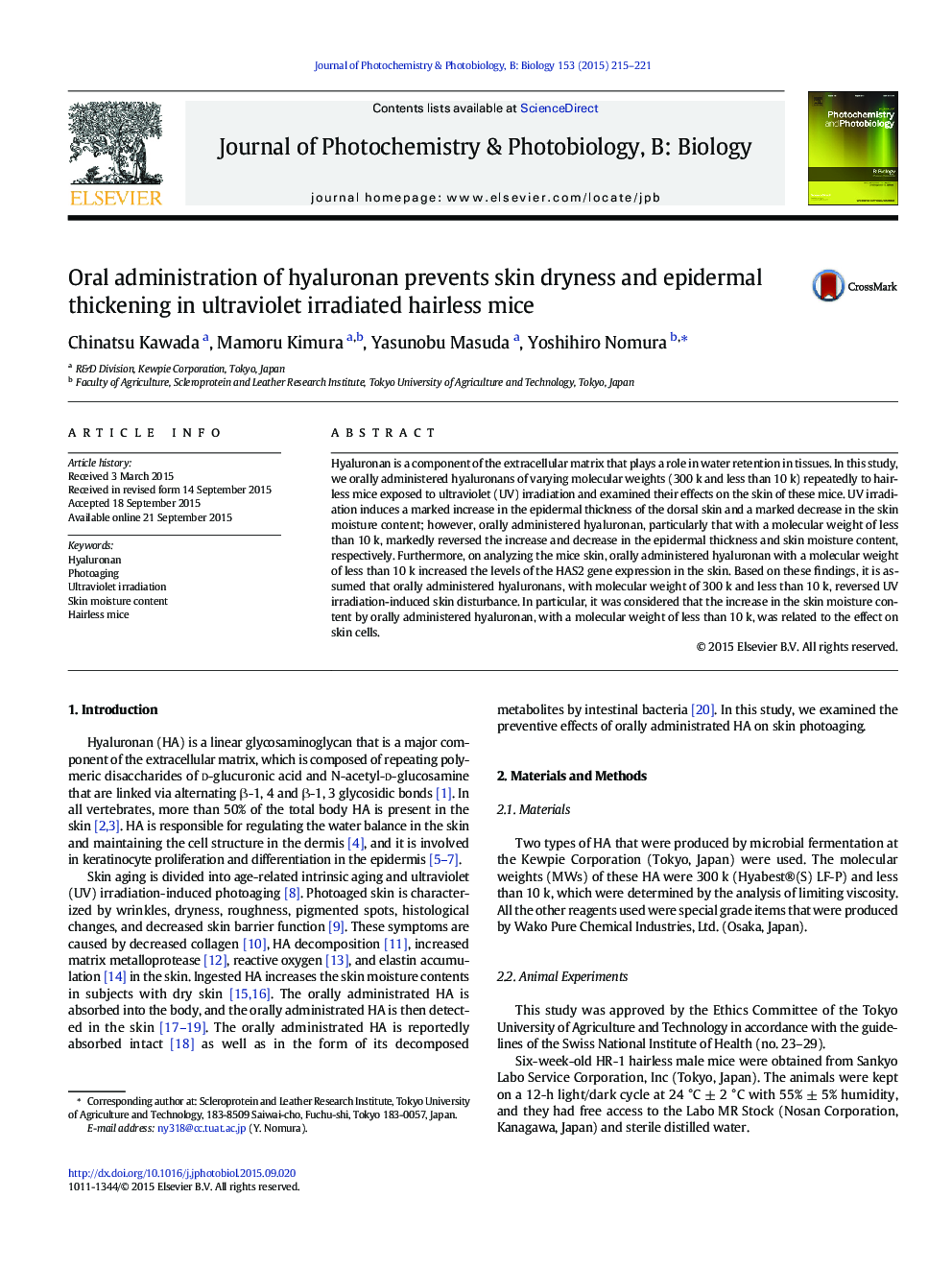| Article ID | Journal | Published Year | Pages | File Type |
|---|---|---|---|---|
| 30123 | Journal of Photochemistry and Photobiology B: Biology | 2015 | 7 Pages |
•Repeated ultraviolet irradiation for 6 weeks damaged the skin in hairless mice.•Orally administered hyaluronans reversed the increase in the epidermal thickness.•Orally administered hyaluronans reversed the decrease in the skin moisture content.•Orally administered hyaluronan (less than 10 k) increased the HAS2 gene expression.
Hyaluronan is a component of the extracellular matrix that plays a role in water retention in tissues. In this study, we orally administered hyaluronans of varying molecular weights (300 k and less than 10 k) repeatedly to hairless mice exposed to ultraviolet (UV) irradiation and examined their effects on the skin of these mice. UV irradiation induces a marked increase in the epidermal thickness of the dorsal skin and a marked decrease in the skin moisture content; however, orally administered hyaluronan, particularly that with a molecular weight of less than 10 k, markedly reversed the increase and decrease in the epidermal thickness and skin moisture content, respectively. Furthermore, on analyzing the mice skin, orally administered hyaluronan with a molecular weight of less than 10 k increased the levels of the HAS2 gene expression in the skin. Based on these findings, it is assumed that orally administered hyaluronans, with molecular weight of 300 k and less than 10 k, reversed UV irradiation-induced skin disturbance. In particular, it was considered that the increase in the skin moisture content by orally administered hyaluronan, with a molecular weight of less than 10 k, was related to the effect on skin cells.
